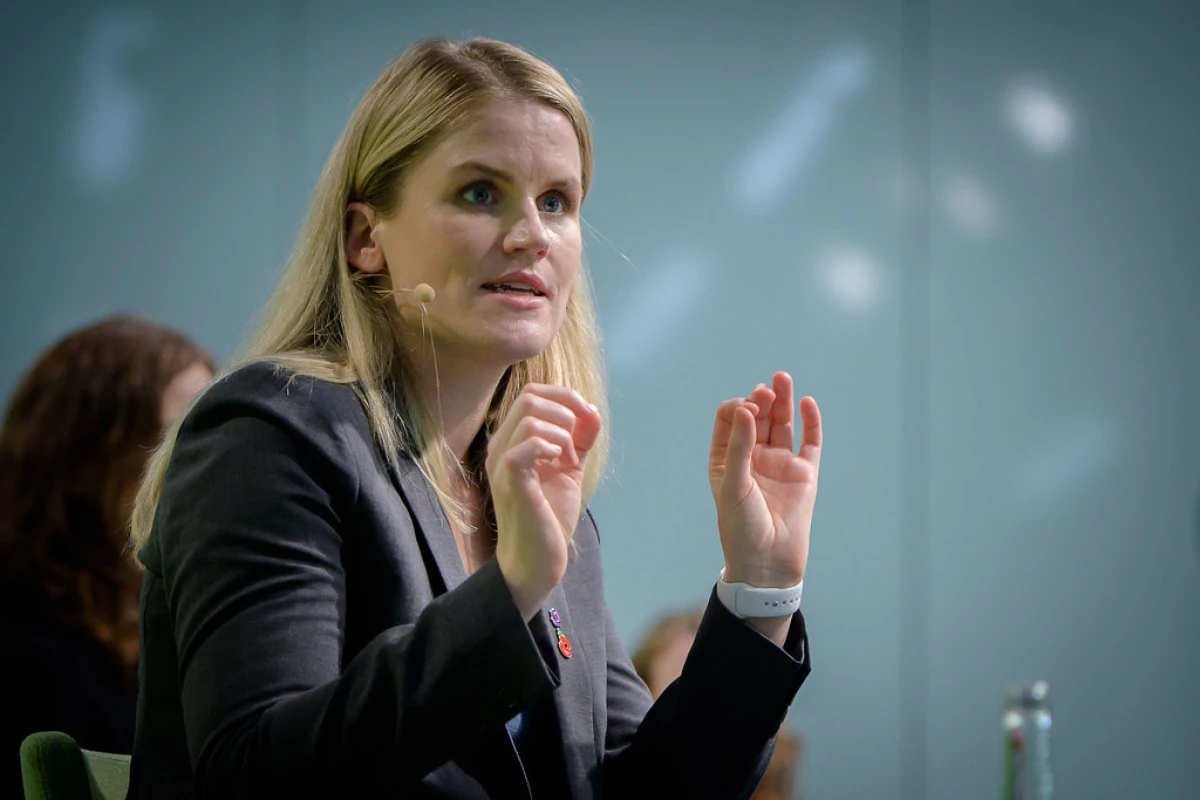Facebook, Open Your Data Trove
As the Facebook Papers revelations continue, it’s critical for the government, through legislation or regulation, to require social media platforms to be more transparent and open up more data to outside researchers.

Credit: Flickr
Authors
Area of Study
Tags
This article was originally published at The Daily News.
Tuesday, a Senate subcommittee will hear important testimony from Frances Haugen, a Facebook whistleblower who shared internal research exposing how the company’s platforms fuel misinformation, increase political polarization, and worsen teen mental health.
The research showed “there were conflicts of interest between what was good for the public and what was good for Facebook,” Haugen told “60 Minutes” on Sunday. “Facebook, over and over again, has shown it chooses profit over safety.”
The Senate hearing comes after nearly three months of bad press for Facebook. In July, the Biden administration and Facebook fought over the platform’s role in allowing COVID-19 misinformation to spread. In August, the company shut down access for NYU researchers studying that spread, and released a misleading report attempting to downplay how popular misinformation is on Facebook. And last week, after The Wall Street Journal published its bombshell reports based on Haugen’s leaked internal research, senators grilled a senior Facebook executive, accusing the company of hiding information about the impact of its products on teens.
These stories all have one thing in common: Facebook (along with other social media platforms) has troves of research trying to measure the effect their products have on society. But, for the most part, the only people who have access to it are employees themselves. Researchers, journalists, lawmakers and the American public are in the dark about the true extent to which social media impacts our lives.
That’s why now, as these revelations continue, it’s critical for the government, through legislation or regulation, to require social media platforms to be more transparent and open up more data to outside researchers.
We run NYU’s Center for Social Media and Politics, an academic research institute dedicated to studying how social media impacts politics, policy and democracy. As quantitative researchers, data is the foundation of everything we study. Often, the data will tell us something different than the anecdotal evidence circulating in the media and online. Two examples illustrate this.
First, in the 2016 election, stories proliferated about the influence and spread of fake news. Many suggested this was a widespread problem and that younger people were more responsible for the spread of fake news because of low digital literacy. In fact, the data showed the opposite. A small percentage of Americans, less than 9%, shared links to fake news sites on Facebook during the 2016 campaign, according to our study, and this behavior was disproportionately common among people over the age of 65. The results are similar on Twitter.
“Fake news accounted for nearly 6% of all news consumption, but it was heavily concentrated — only 1% of users were exposed to 80% of fake news, and 0.1% of users were responsible for sharing 80% of fake news,” researchers at Northeastern University found. “Individuals most likely to engage with fake news sources were conservative-leaning, older and highly engaged with political news.”
Second, conventional wisdom in 2016 stated that social media places citizens in political “bubbles” or “echo chambers,” where users are exposed primarily to news aligned with their ideological beliefs. Once again, the data tells a different, more nuanced story. After surveying 1,500 Americans, and analyzing their Twitter data, we found most Twitter users actually consume news diets that overlap more than they diverge. This followed earlier research showing that the propensity of conservatives to share information from liberals — and vice versa — varied widely across different topics.
Social media platforms, much like the people they connect, are complex, and yet we too often find ourselves caught between two competing arguments. On the one hand, reports using available data highlight how platforms enable the spread of vaccine misinformation, hate speech and extreme content. On the other, platform executives claim that these reports employ incomplete data and thus do not offer a comprehensive view of the online communities their products serve.
And that’s precisely why open data access is so important.
While research on social media’s impact on society has made admirable strides in the last decade, academic work has often been hampered by a lack of platform transparency and access to the data we need to truly understand what’s happening online. These challenges have limited research investigating the relationship between our democracy and the evolving digital information environment — research on urgent topics like COVID-19 misinformation, the effects of online advertisements on elections, and more.
Lawmakers and the Biden administration recognize this need. In May, Reps. Lori Trahan and Kathy Castor introduced the Social Media DATA Act, which would deliver some of the information we need to study the impact of digital ads. The bill is an important first step to help ensure scholars can produce research that benefits the public, enables evidence-based policymaking, and supports our democratic institutions. With President Biden’s support, regulatory agencies, like the FCC or FTC, could go further by requiring even more platform transparency.
“There is this saying at Facebook, which is data wins arguments,” former Facebook executive Brian Boland said on CNN this summer, discussing misinformation on the platform.
Yet despite recent attempts to make some data available to outside researchers, right now Facebook is the only one looking at all of the data. And they’re certainly not winning any arguments by holding it back.
Nagler and Tucker are faculty co-directors of NYU’s Center for Social Media and Politics, and professors of politics at NYU. Tucker co-leads an independent research project studying Facebook’s impact on the 2020 election.